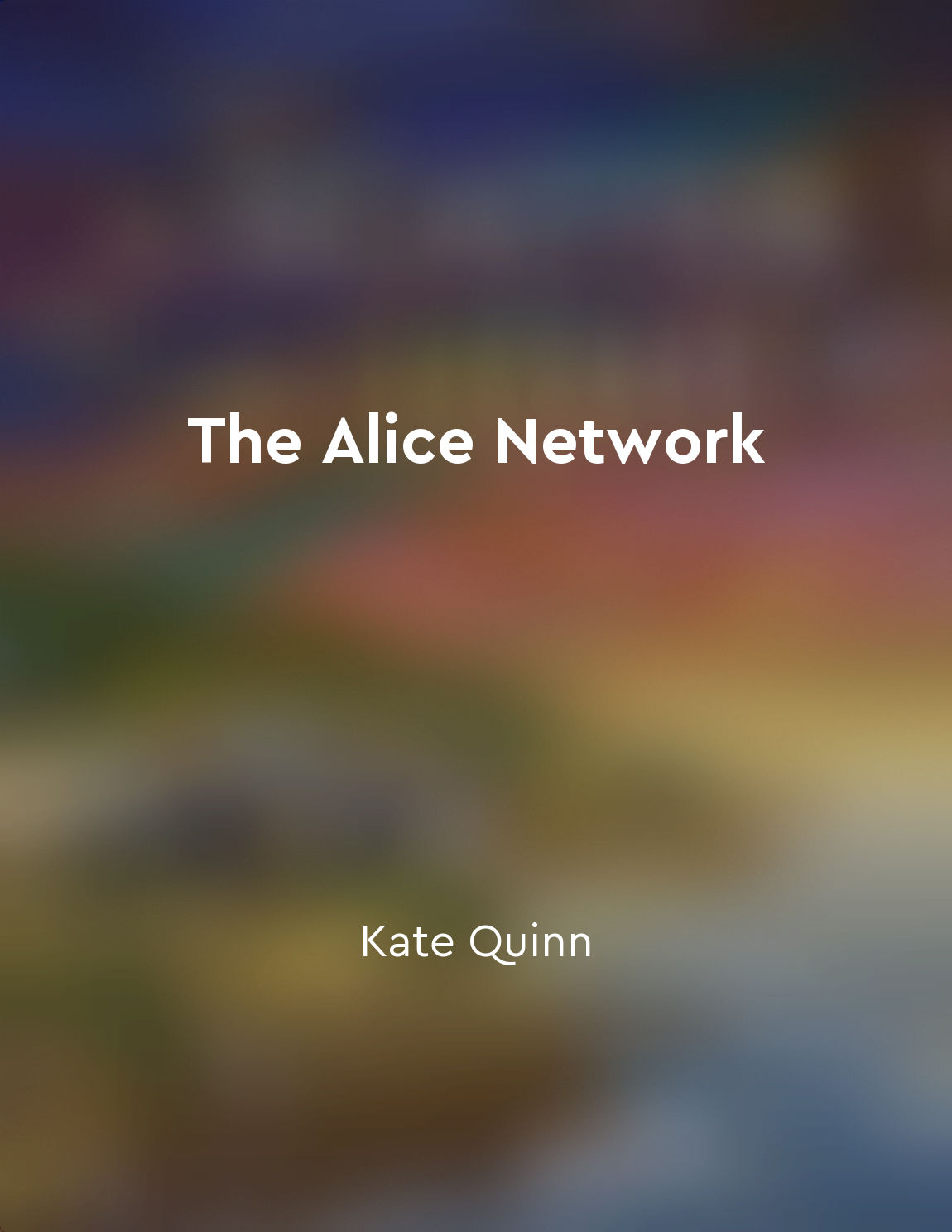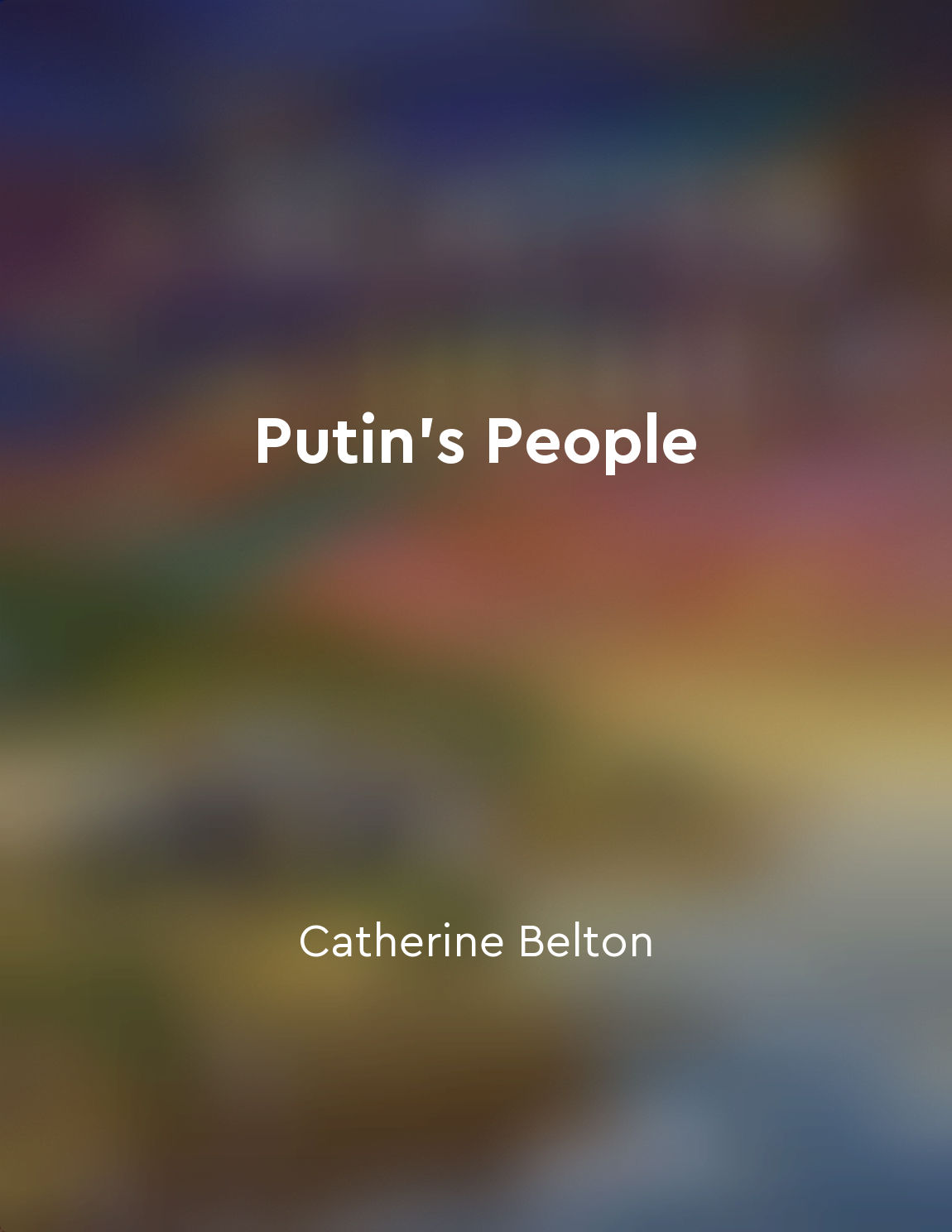Betrayal is a common theme in politics from "summary" of Darkness at Noon by Arthur Koestler
Betrayal is an essential part of the political game. It is a necessary evil that often plays a central role in the power struggles that define the political landscape. In "Darkness at Noon," this theme is explored in great detail through the character of Rubashov. As a former high-ranking party member, Rubashov finds himself caught in a web of betrayal and deceit that ultimately leads to his downfall. Throughout the novel, Rubashov is betrayed by his own comrades, many of whom he once considered friends. These betrayals come in various forms, from outright treachery to subtle manipulation. The political climate in which Rubashov operates is one where loyalty is a fleeting concept, easily traded in for personal gain or survival. In this world, betrayal is a common currency, used to advance one's own agenda at the expense of others. Rubashov's own actions also contribute to the theme of betrayal. As a dedicated party member, he has carried out numerous acts of betrayal himself, all in the name of the greater good. However, as he reflects on his past deeds, Rubashov begins to question the morality of his actions and the true cost of his loyalty to the party. In doing so, he is forced to confront the ways in which he has betrayed not only others but also himself. The novel delves into the complex motivations behind betrayal in politics. It portrays betrayal as a multifaceted phenomenon driven by a combination of personal ambition, ideological fervor, and fear. Individuals like Rubashov are forced to navigate these treacherous waters, never quite sure who they can trust or when they will be betrayed next. In this world, betrayal is not just a possibility but a certainty, a constant threat that looms over every political decision and action.- "Darkness at Noon" serves as a stark reminder of the harsh realities of political life. It paints a bleak picture of a world where betrayal is not just common but expected, a necessary tool in the pursuit of power and influence. By exploring the theme of betrayal in such depth and detail, the novel forces readers to confront the darker side of politics and the moral compromises that are often required to survive in such a ruthless environment.
Similar Posts
The story explores the journey of a young tribal chief named Shiva
The tale delves into the life of a youthful tribal leader known as Shiva. He is a courageous and charismatic individual who is ...

Resilient female protagonists
The women I write about are not delicate flowers to be coddled and protected. They are survivors, with sharp minds and even sha...
The pursuit of power can lead to unintended consequences
The desire for power is a primal instinct that drives individuals to seek control over others. In 'The Power', this pursuit of ...

Embracing diversity and inclusivity
In the land of Gujarat, we were a motley crew. Omi was a devout Hindu, Ishaan a Muslim, and Ali a talented cricket player and a...

Their paths collide in an explosive encounter
Their paths collided like two speeding trains, each racing towards an inevitable crash. Indigo Bellamy and Sailor Brennan, two ...
Adventures in London
In days to come, the Prince and the Pauper roamed about the great city of London, sometimes together, sometimes apart. They saw...
Leadership requires strategic thinking and cunning
Leadership is not simply about guiding others or making decisions; it also requires a deep understanding of strategy and the ab...
The power of forgiveness
Forgiveness is a mighty force that has the ability to heal wounds, repair broken relationships, and set free those who are burd...
The consequences of ambition and greed
Ambition and greed are powerful forces that drive individuals to pursue their desires relentlessly, often at the expense of oth...

The Russian economy has been plagued by corruption and mismanagement under Putin's rule
Catherine Belton delves deep into the intricate web of corruption and mismanagement that has entangled the Russian economy duri...

